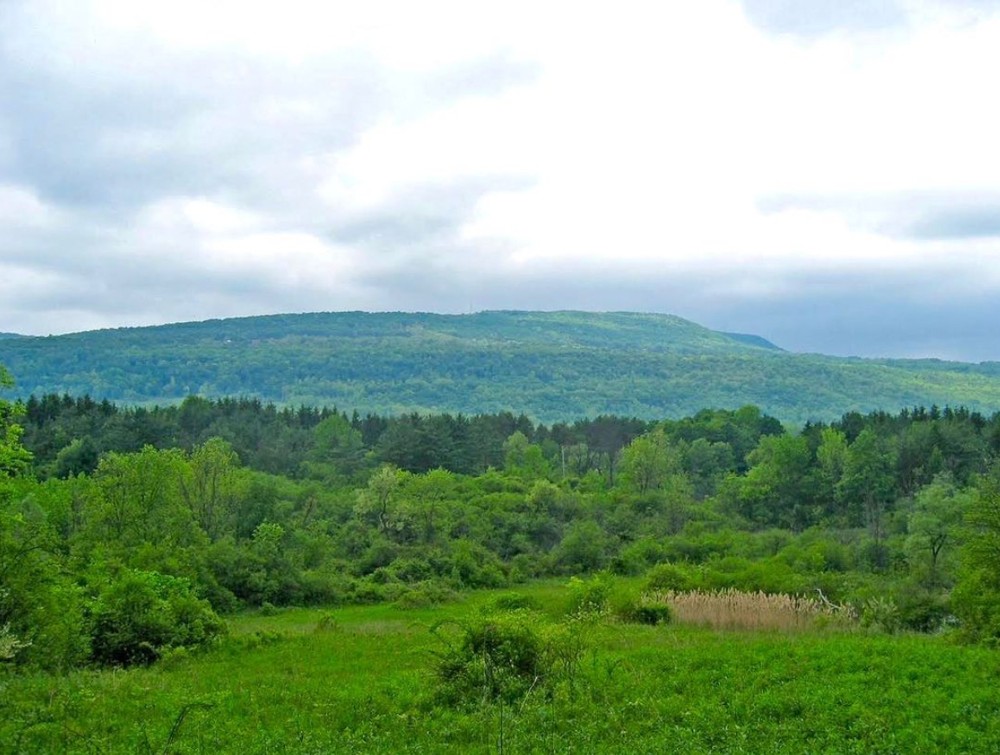
- Details
- By Jenna Kunze
On Wednesday, June 29, 1,000 acres of ancestral homeland in the Tully Valley in Central New York was returned to the Onondaga Nation.
The land return–one of the largest transfers from a state to an Indigenous nation—was part of a 2018 Natural Resource Damage Assessment and Restoration settlement. The settlement is an agreement between the Dept. of the Interior’s trustees U.S. Fish and Wildlife Service and New York State Department of Environmental Conservation, and the landowner, Honeywell International Inc., to transfer the land title back to the tribe.
In 2005, the Onondaga Nation filed a federal lawsuit against the State of New York for taking 2.5 million acres of their homeland in violation of federal law and treaties between 1788 and 1822. The case was dismissed in 2010, and the Nation then brought the case to the International Court of Justice at the United Nations in 2014.
Onondaga Nation Chief Tadodaho Sidney Hill said in a statement that the Onondaga Nation welcomes the land transfer “with great joy.”
“The Nation can now renew its stewardship obligations to restore these lands and waters and to preserve them for the future generations yet to come,” Hill said. “The Nation hopes that this cooperative, government-to-government effort will be another step in healing between themselves and all others who live in this region, which has been the homeland of the Onondaga Nation since the dawn of time.”
A central part of this week’s land back is Onondaga Lake, a sacred place for the Onondaga and the Haudenosaunee. Industrial pollution beginning in the 1800s destroyed many plant and wildlife species in the lake. The state banned swimming in 1940 and fishing in 1970 (though fishing reopened by 1986 after some cleanup efforts), according to the state Department of Conservation. Honeywell, which merged with the company responsible for much of the pollution, has played an “instrumental role in the remediation efforts.”
Honeywell International is required by the settlement to implement 18 restoration projects, and pay more than $5 million for the trustees’ implementation of additional restoration projects in and around the Onondaga Lake Watershed, the Interior Department said.
A New York State Department of Environmental Conservation easement on the property will prohibit commercial development, provide for the protection and restoration of natural areas, including fish and wildlife habitat, in accordance with traditional ecological knowledge, and allow for outdoor recreational and educational uses.
“It’s a great day for locally led conservation and for the Onondaga people who have inhabited the area for centuries,” Secretary of the Interior Deb Haaland wrote on Instagram. “As the original stewards of the land, the Onondaga Nation will use Indigenous knowledge to manage the area’s wildlife and habitat.”
More Stories Like This
Tribes, Coastal Group Ask Army Corps to Revoke Permit for Texas Export TerminalMichigan Tribes Tell Supreme Court: Don’t Bail Out Enbridge
Alaskans Raise More Than $1 Million For Communities Devastated by Typhoon Halong
A True American Tale: Indigenous Rights vs. Corporate Greed
In photos: Residents of Western Alaska Share Storm Damage of Ex-Typhoon Halong
Help us tell the stories that could save Native languages and food traditions
At a critical moment for Indian Country, Native News Online is embarking on our most ambitious reporting project yet: "Cultivating Culture," a three-year investigation into two forces shaping Native community survival—food sovereignty and language revitalization.
The devastating impact of COVID-19 accelerated the loss of Native elders and with them, irreplaceable cultural knowledge. Yet across tribal communities, innovative leaders are fighting back, reclaiming traditional food systems and breathing new life into Native languages. These aren't just cultural preservation efforts—they're powerful pathways to community health, healing, and resilience.
Our dedicated reporting team will spend three years documenting these stories through on-the-ground reporting in 18 tribal communities, producing over 200 in-depth stories, 18 podcast episodes, and multimedia content that amplifies Indigenous voices. We'll show policymakers, funders, and allies how cultural restoration directly impacts physical and mental wellness while celebrating successful models of sovereignty and self-determination.
This isn't corporate media parachuting into Indian Country for a quick story. This is sustained, relationship-based journalism by Native reporters who understand these communities. It's "Warrior Journalism"—fearless reporting that serves the 5.5 million readers who depend on us for news that mainstream media often ignores.
We need your help right now. While we've secured partial funding, we're still $450,000 short of our three-year budget. Our immediate goal is $25,000 this month to keep this critical work moving forward—funding reporter salaries, travel to remote communities, photography, and the deep reporting these stories deserve.
Every dollar directly supports Indigenous journalists telling Indigenous stories. Whether it's $5 or $50, your contribution ensures these vital narratives of resilience, innovation, and hope don't disappear into silence.
 The stakes couldn't be higher. Native languages are being lost at an alarming rate. Food insecurity plagues many tribal communities. But solutions are emerging, and these stories need to be told.
The stakes couldn't be higher. Native languages are being lost at an alarming rate. Food insecurity plagues many tribal communities. But solutions are emerging, and these stories need to be told.
Support independent Native journalism. Fund the stories that matter.
Levi Rickert (Potawatomi), Editor & Publisher

